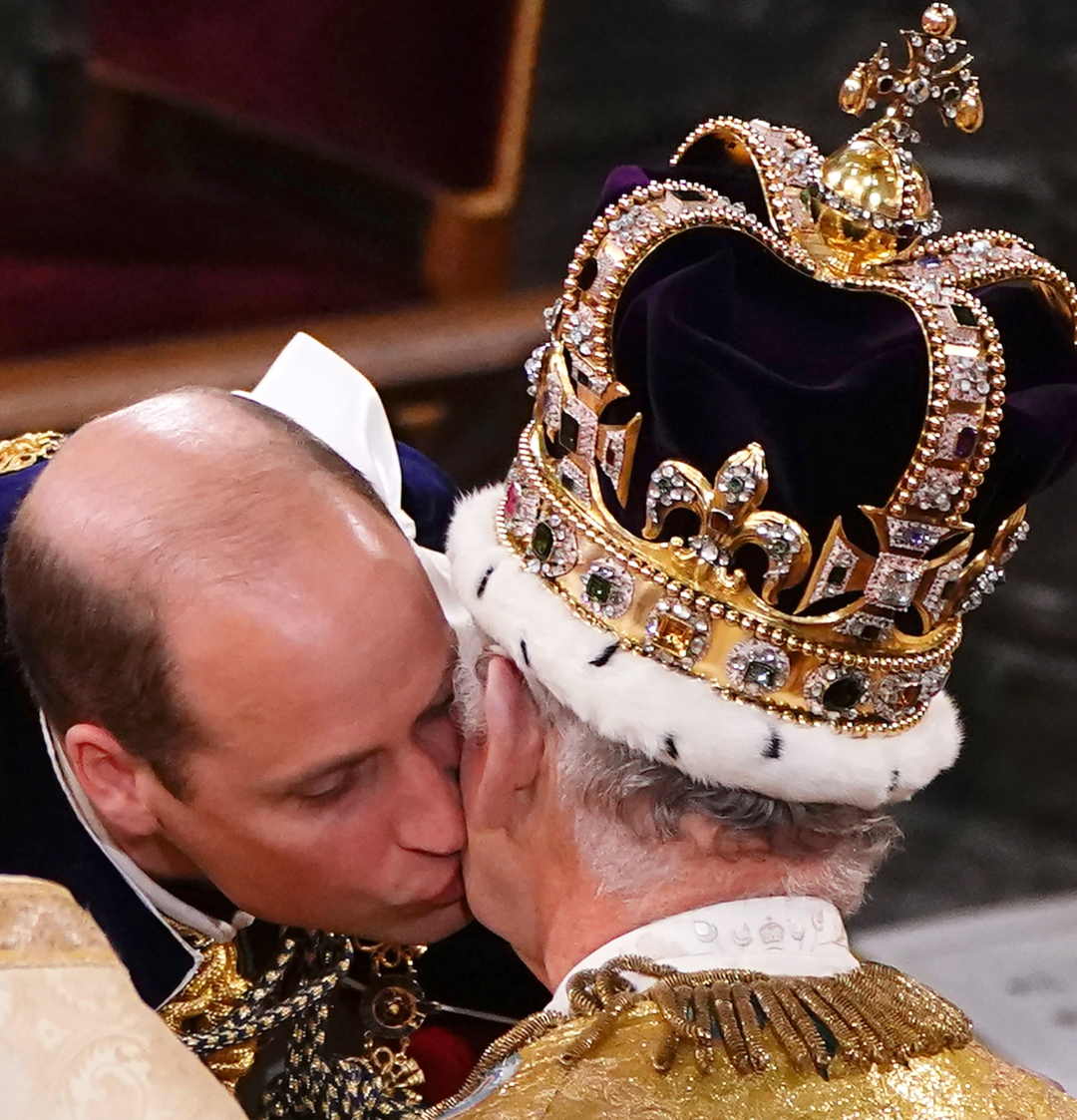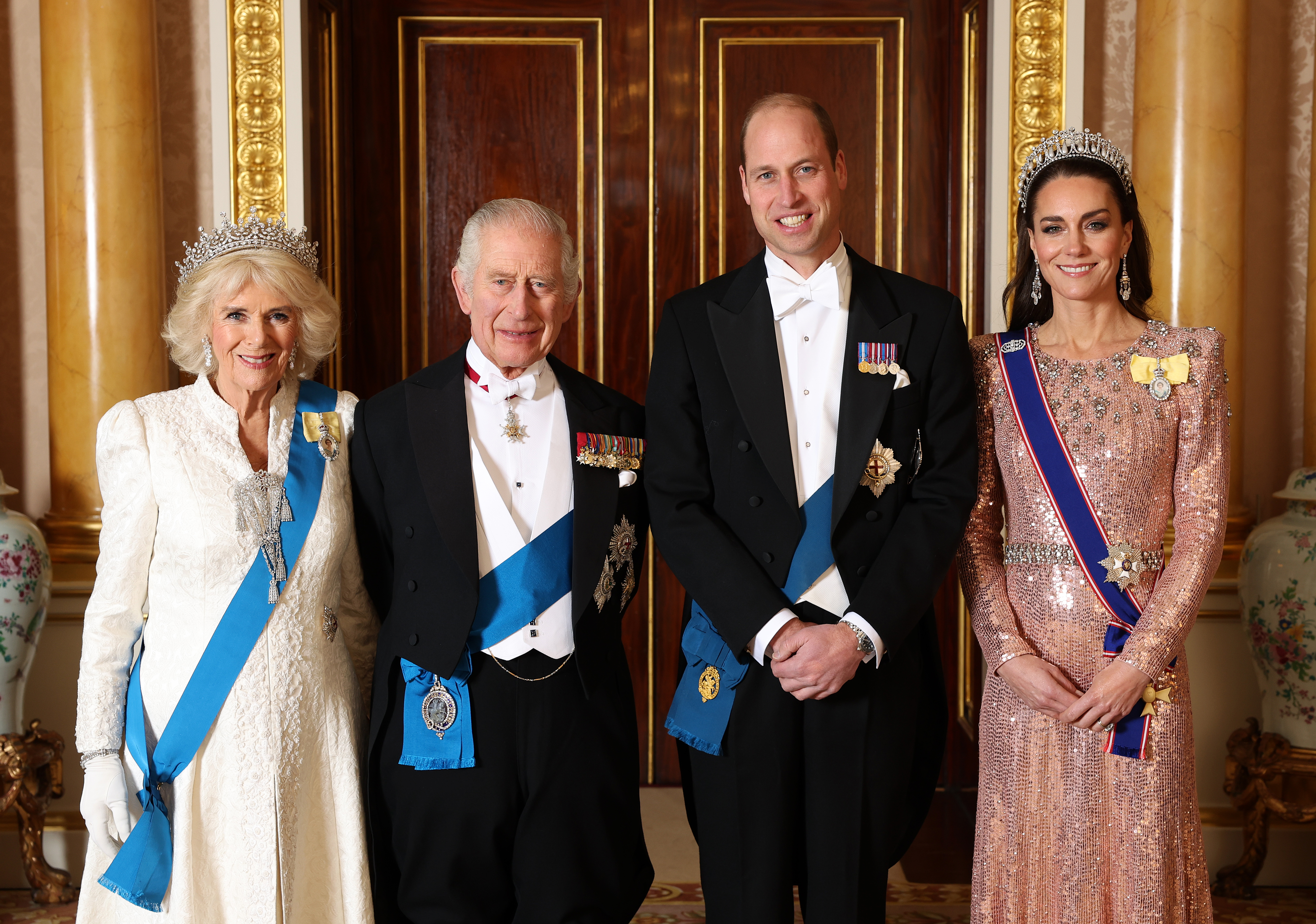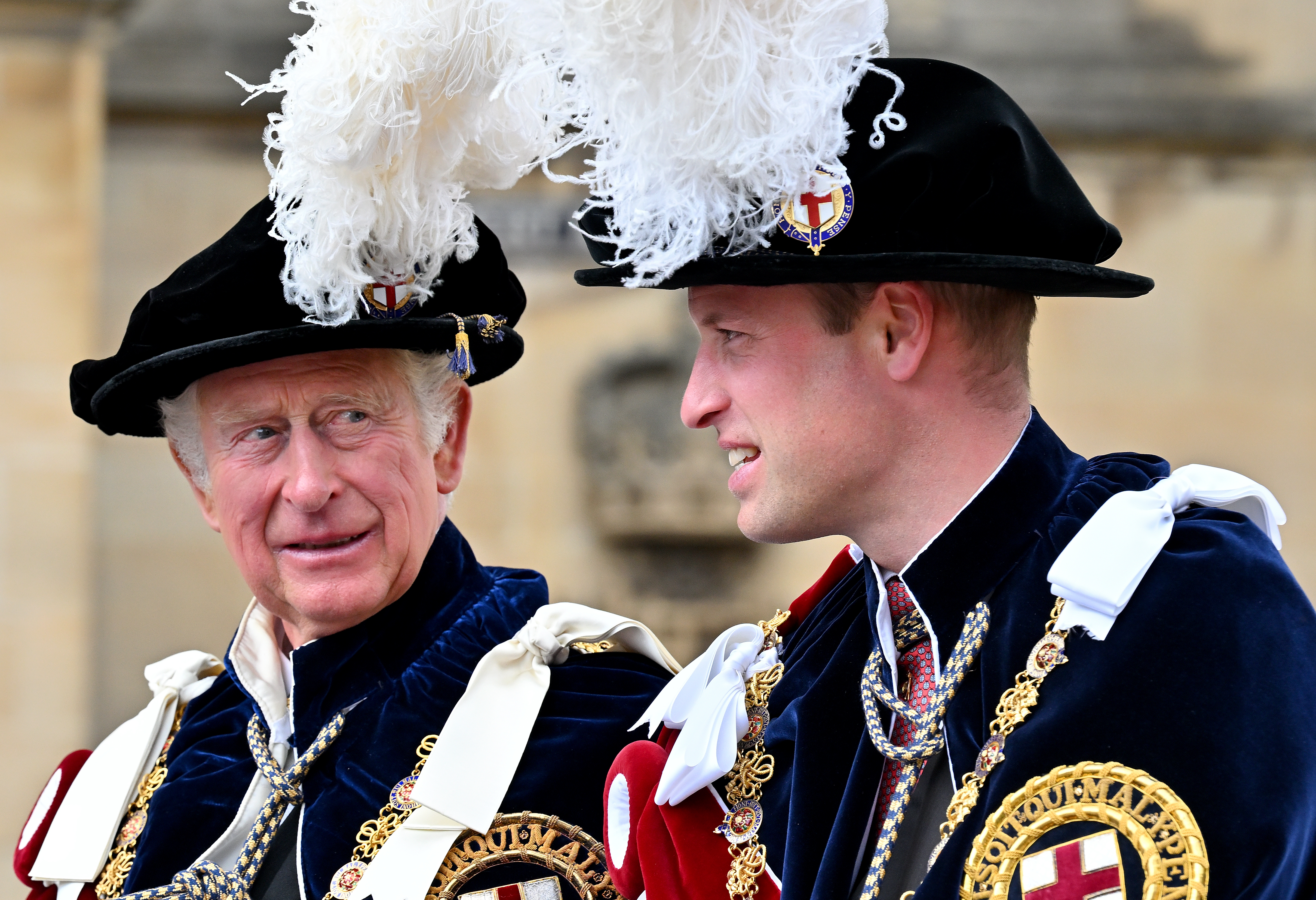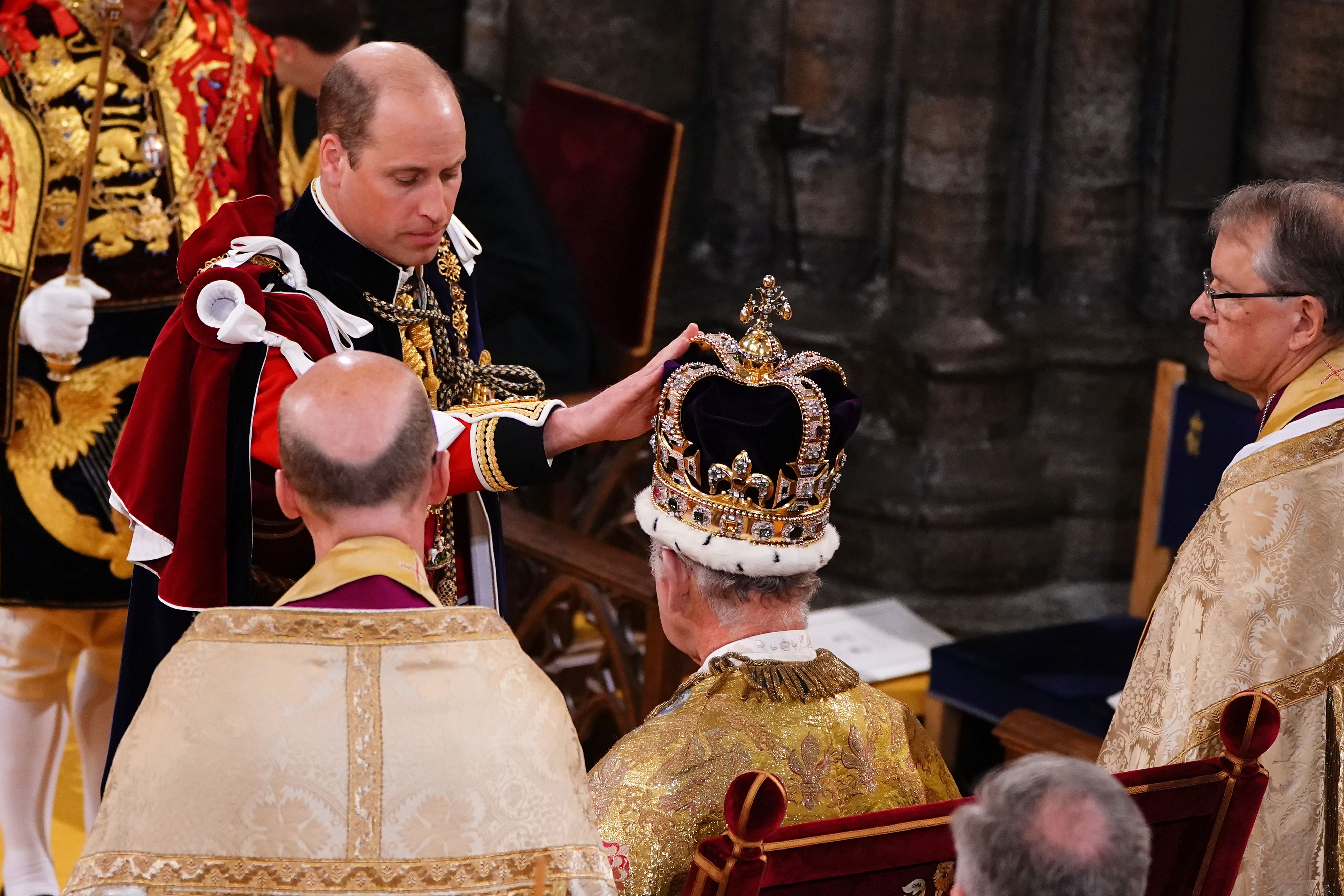
After King Charles was diagnosed with cancer last year, royal chatter quickly turned to whether he might abdicate the throne to Prince William one day. The tradition of abdication might be more common in European monarchies, but in Britain, being King or Queen is seen as a lifelong job. After all, Queen Elizabeth famously stated on her 21st birthday, "I declare before you all that my whole life, whether it be long or short, shall be devoted to your service." But what happens if The King is no longer able to fulfill his duties?
According to royal historian Jessica Storoschuk, the public shouldn't expect King Charles to step down anytime soon—or ever.
"It seems unlikely that King Charles will abdicate the throne, as he appears to have the same 'lifelong' approach to his role as monarch like his late mother," the An Historian Around Town blogger tells Marie Claire. "If his health issues worsen, it would be likely that the other senior royals would step into his role on a day-to-day basis rather than abdication."
Speaking on behalf of Prime Casino, Grant Harrold—who served as a royal butler to The King—agrees that abdication is likely off the table. "Just like his mother, he’ll continue to serve until his final breath," Harrold says. "That sense of duty is ingrained in him—it’s who he is."


Harrold adds that "Charles has already put things in place in case he is in a position where he is unable to carry out duties himself."
In the event a monarch can't take on his or her duties, there are Counsellors of State who can act on behalf of The King in his absence. According to the Royal Family, this includes "the Sovereign's spouse and the next four people in the line of succession who are over the age of 21." However, the Regency Act was amended in 2022 so Princess Anne and Prince Edward could also serve as Counsellors of State—and this was due to a unique problem.
The current group includes Queen Camilla, Prince William, Princess Anne, Prince Edward, Prince Harry, Prince Andrew and Princess Beatrice. However, the Royal Family's site notes that, "In practice, only working Members of the Royal Family are called upon to act as Counsellors of State"—making it very unlikely Prince Harry, Prince Andrew or his daughter, Beatrice, would serve in that role. Since none of them are working senior royals, The Queen and the Prince of Wales were the only qualified Counsellors of State before the law was changed.

Several high-profile abdications have happened in Europe and Asia recently, including Queen Margrethe passing the crown on to her son, King Frederik in 2024 and Grand Duke Henri of Luxembourg announcing last Christmas that he will abdicate his throne later this year. However, Storoschuk tells Marie Claire that these monarchies "do not have the same history with abdication that the British crown does."
She points to King Edward VIII abdicating the throne because of Wallis Simpson, stating, "the ramifications of that abdication still be felt in the British Royal Family, and it's unlikely that those will be forgotten in the near future."
At the end of the day, Harrold says, "No one truly knows what’s going on in The King’s mind, but from what I saw— and I don't believe he’s changed in this regard—abdication would be the very last thing he’d ever consider. It’s just not in his nature."







